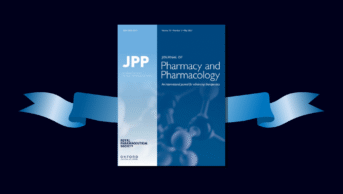Research in practice has traditionally been the Cinderella of academia. Many pharmacists conduct service evaluations and audits, but often the findings are not published.
The Faculty of the Royal Pharmaceutical Society (RPS) recognises that this work contributes to the competency of pharmacy professionals through the research and evaluation competency cluster in the advanced pharmacy framework; but, practitioners often find the research and evaluation competency cluster the most challenging to complete. They report lack of confidence in undertaking research, as well as challenges with time and funding to develop research in practice or to undertake formal further qualifications.
Within their first ten years of practice, many pharmacists undertake postgraduate diplomas to support clinical development and postgraduate masters in their speciality or area of interest. Many senior practitioners contribute to the evidence base through research in practice throughout their career, but academic recognition for this important work has been elusive.
Options are limited to the traditional three-year PhD or, more recently, the DPharm (doctorate in pharmacy), which is offered by a number of universities, including Aston, Keele, Bradford, Strathclyde and Portsmouth. Taking three years out of work can be impractical for senior practitioners, often for financial reasons. Fully-funded PhDs with a guaranteed job on return are rare. The DPharm may be a more attractive option — a 4 to 6-year part-time course that comprises a variety of modules and a research-based project. However, awards for neither the university-based nor practice-based doctorates take account of the existing body of work of the senior practitioner.
Enter the PhD by publication, and the DProf public works — awards for which the applicant is required to describe their substantial body of work and its impact. This is equivalent to a traditional PhD. The awards are offered by many universities across the UK and some require a specific number of peer-reviewed publications to be included in the submission. Others consider all relevant work in the public domain, which may include print publications, presentations, projects, educational videos and TV appearances. This type of doctorate is traditionally offered in the arts, but senior pharmacy practitioners are now benefitting this method of academic recognition for their practice.
Prior to application for a PhD by publication, applicants are required to provide a ‘Prima Facie’ statement that outlines their theme and work to date and that the applicant has sufficient publications or public works of an appropriate quality, under one theme, to undertake the PhD. On acceptance, applicants are required to produce a new narrative that describes both content and impact of their contribution to practice, in the context of the existing knowledge and literature in their area. This ‘context statement’ (Middlesex) or ‘introductory section’ (Kingston) varies in length according to the university (10,000–30,000 words) and is examined by the traditional Viva Voce.
Once the application has been accepted by the university, it is important to find a supervisor with expertise in the appropriate area. The supervisor is required to guide the student from their current level of expertise to a highly expert level, commensurate with doctoral study. Although in this case, the candidate will have had some academic experience and may have expertise and critical-thinking skills that are readily developed to doctoral level, they may need help with navigating the possibly unfamiliar process of doctoral study. Supervisors examine the impact and outcomes of the work, although not through traditional metrics. Published papers are important but the supervisor must consider how the research has been used to develop policy and change practice, not just in the practitioner’s practice environment.
A PhD by publication can be more accessible to those in work, for instance the course at Kingston University requires around one day per week, over one year, concentrated in the first three months, to prepare the first draft. As a full-time worker, this time can be found at weekends, although a sabbatical, secondment, study leave and unpaid leave are also options. The cost of courses can be fully or partially covered by a grant, for example from Pharmacy Research UK. Often communication with supervisors can be conducted by email or video conference.
The PhD by publication and DProf public can contribute to revalidation for the RPS Faculty fellowship and provide opportunities for senior practitioners to demonstrate the value and impact of their ongoing work to the wider profession. Pharmacists can consider consolidating the practice research throughout their careers into an academically recognised award. Completion of this type of doctorate sends a clear message to the profession about the importance and impact of research as part of daily pharmacy practice.
Nina Barnett, consultant pharmacist, London Northwest Healthcare NHS trust
Chris Cairns, professor of pharmacy practice, Kingston University London
Raliat Onatade, interim deputy chief pharmacist, Barts Health NHS Trust


